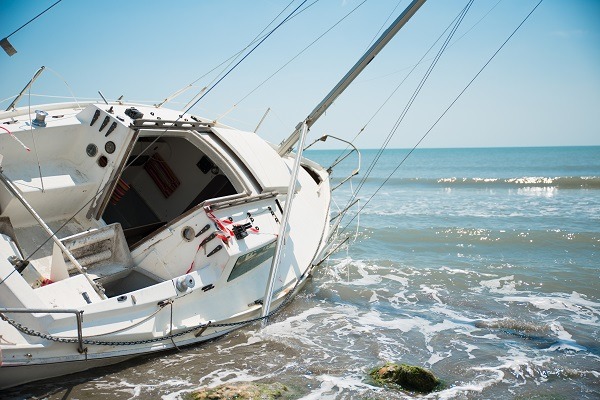Boating is a fun activity that allows anyone to relax, connect with nature, and spend quality time with friends and family at the same time. However, even if boating is an enjoyable pastime, accidents could still happen, which can result in serious injuries or, worse, death.
Even if the contributing factors and exact details of individual boating accidents are unique, there are different causes that are common in boating accidents. In case you’re a victim of a boating accident and you believe that it’s due to somebody else’s negligence, make sure to hire a boat accident lawyer in Michigan or legal counsel from anywhere you’re reading this, to help you take the next steps.
With that said, here are some of the top causes of boating accidents:
1. Equipment Malfunction
Fatal boating accidents often happen due to defective or poorly maintained motors and faulty steering mechanisms as well as some of the boat’s parts such as the rudder or the navigations systems. If a part isn’t properly inspected before being taken onto the water, the boat will malfunction and may cause it to capsize, sink, or result in an onboard fire.
To prevent serious boating accidents, you must ensure your boat’s main equipment and components are safe and working before use.
2. Environmental Causes
Environmental factors may also cause boating accidents. Intense waves and big rocks can quickly harm unprepared boat operators as well as their passengers. However, if you or one of your companions are an experienced boat driver, these cases are rare since they know how to stay safe in a boat and how to avoid such hazards while on the water.
3. Excessive Speed
Several boats are faster than other models, but the majority of them can be operated at normal speeds. Like roadways, many waterways also have speed limits, but unfortunately, only some follow the rules. For this reason, some boat operators typically drive too fast, which often results in single-boat accidents, collisions with other vessels, rollovers, and so on.
To avoid going over the limit, know what your state’s boating laws are. Some states treat personal watercrafts (PWCs) like automobiles where they must follow local speed ordinances and local laws pertaining to speed limits, while others only set speed limits for when PWCs are a certain distance from the shore, dock, persons in water, etc.
4. Alcohol Use
The laws for blood alcohol content (BAC) are the same for boat operators and automobile drivers. It’s considered a criminal offense if you operate a boat under the influence of alcohol or if your BAC is more than 0.08.
It isn’t uncommon to drink beers and spend a relaxing day out on the water. But just because a boat is different from a car, it doesn’t mean that it isn’t covered by your state’s drunk driving laws. As you would on land, assign a designated boat driver or just limit yourself to a couple, just to be on the safe side.
5. Violation Of Navigational Rules
To ensure all boats on the water are safe, several navigational rules are imposed. This is especially true in places with heavy boat traffic. Even if most boaters know how to run their boats well, some are still unaware of the certain rules that rule over the water. When such boat operators violate any navigational law that governs the water, dangerous impacts and serious collisions may occur.
6. Distracted Boat Driving
Another common cause of boating accidents is boat operator inattention. More often than not, the driver of the boat takes charge of navigating and driving the vessel safely, which makes them responsible to keep track of the weather conditions and wind patterns while ensuring that they follow the maritime laws.
When the boat operator isn’t paying attention or distracted by something, they could miss potential hazards in the water, drive at inappropriate speeds, and make dangerous and sudden turns. All these can result in serious boating accidents.
7. Overloading
Boats, like any other vehicle, have loading limitations. When boats carry more people, it may lead to overloading. This can be risky as it often results in capsizing that leads to fatal and serious boating accident injuries.
8. Operator Inexperience
Inexperienced boat operators can pose a risk to people around them. When someone is new to certain activities, mistakes may happen, which can lead to disastrous accidents. So if you want to enjoy boating without any problems, avoid having an inexperienced operator on the helm and look for someone who has more experience and expertise in boating instead. With a highly experienced boat operator, you can be sure you’ll have a great boating experience and enjoy the best boating season.
9. Lack Of Preparation
Regardless of your boating activities, it’s essential to be prepared. Flares, life vests, medical supplies, sound-producing devices, and drinking water are just some of the items you should bring on a boat. Some of them can be of great help if you become lost or if you want to avoid accidental drowning.
Conclusion
When boating accidents happen, not only the responsible party will be held accountable for being negligent; but they may also have violated maritime, federal, and state laws. Knowing when such laws come into play is important for all victims of boating accidents because most legal proceedings vary when it comes to maritime regulations.
With this in mind and if and when accidents happen, it’s always wise to hire legal counsel who is knowledgeable and well versed in maritime legal procedures and boating laws.

